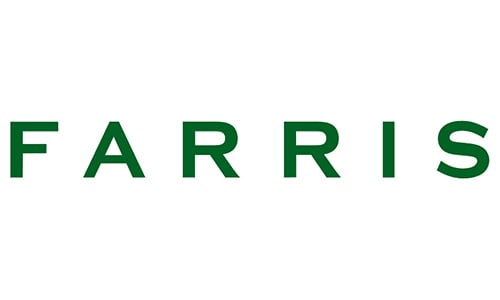Commercial tenancies or leases are convenient ways of using a property for the benefit of both the tenant and the landlord. However, when disputes arise or when there’s violation of the right of another, how can this be resolved? Canada’s provincial commercial tenant acts are in place for this reason.
What is commercial tenancy in Canada?
Tenancy is the act of temporary use or possession of another’s property subject to periodic lease or rental payments. It may also refer to the lease agreement or contract itself.
The parties to the contract are the owner of the property (the landlord or lessor) and the one who occupies, rents, or leases the same property (the tenant or lessee).
There are two types of tenancies under Canadian laws:
- Commercial tenancy: when the tenant uses the property for business purposes (e.g., putting up an office, or a store) or any other purpose other than for residential purposes.
- Residential tenancy: when the tenant uses a space or a house solely as personal residence.
The two distinctions are important because Canada’s laws apply differently between commercial tenancies and residential tenancies.
Is there a commercial tenant act in Canada?
Tenancy laws in Canada are under the jurisdiction of the provinces and territories. Some of these provinces and territories have enacted their own residential and commercial tenant acts:
- Ontario: Commercial Tenancies Act
- British Columbia: Commercial Tenancy Act
- Saskatchewan: The Landlord and Tenant Act
- Yukon: Commercial Landlord and Tenant Act
As for Québec, commercial tenancies, lease contracts and agreements are covered by the Civil Code of Québec.
As for Alberta, its Commercial Tenancies Protection Act, which was enacted at the height of the COVID-19 pandemic, applies only to rental payments between March 17, 2020 and August 31, 2020.
For other provinces (including Alberta) that did not enact their own commercial tenant act, Canada’s common law, including the law on contracts, applies.
Application of commercial tenant acts
These provincial commercial tenant acts only apply to commercial lease or commercial tenancy, as defined by these laws.
Residential tenancy is not covered by these provincial commercial tenant acts. The provincial laws on residential tenancies would apply.
Watch this video to know more about commercial leases and lease reviews which property leasing lawyers can assist you with:
Reach out to a property leasing lawyer in your area for more on the commercial tenant act. Tenants in Vancouver, for example, can reach out to the Lexpert-Ranked best property leasing lawyers in B.C.
What are the rights of tenants and landlords under the commercial tenant act?
The provincial commercial tenant acts provide for the legal remedies that tenants and landlords may resort to when disputes arise. However, this must be read in relation to the parties’ lease contract or agreement.
Contract law for tenants and landlords
The lease contract or tenancy agreement must outline the rights and obligations of both the tenant and the landlord, up to smallest detail.
This applies especially to provinces that do not have their own commercial tenant act.
For provinces that do have their own laws, the contract may still govern if:
- it’s not contrary to any other law
- its provisions are according to the intent of the parties
For a lease contract or agreement to be legally-binding, it must – at the minimum – include these details:
- Names of the landlord and the tenant
- Description of the exact space or property
- Date when the lease will start
- Duration of the lease
- Amount of rent and payment process
- Any other important term for the validity of the lease
Form of contract
There is no required format for commercial tenancy contracts. The parties may put in the contract whatever they want, as long as it’s not illegal or contrary to the commercial tenant acts. What is important is that the lease contract must be in writing.
However, most provincial commercial tenant acts provide some standard forms for the notices. For instance, Saskatchewan’s law provides for certain forms that may be applicable to commercial tenancies, such as:
- Notice to Landlord
- Demand for Possession and Notice to Tenant of Intention to Apply for a Writ of Possession
- Writ of Possession
Eviction of commercial tenants
When it comes to eviction, tenants and landlords of commercial properties have rights under the applicable provincial commercial tenant act.
Although evicting a commercial tenant in Canada is possible, it must follow due process as stated in these laws.
Read more: What are the rights of a commercial lease tenant?
Grounds for eviction of commercial tenants
The grounds for evicting a tenant are found in the commercial lease contract itself.
It will state what possible breaches of contract could lead to eviction. The commercial lease contract will also describe the acts which constitute breach of contract on the part of the landlord.
Some common grounds of eviction include:
- Non-payment of lease or rent, which can be successive or in any other manner according to the lease contract.
- Violating a specific provision in the contract (e.g., relating to garbage, allowable businesses to operate, repair and maintenance, insurance, etc.).
Legal remedies of commercial landlords
When there’s breach of a lease contract, that same contract will provide for its remedies. Common law and the provincial commercial tenant acts provide the landlord these legal remedies:
- possession and selling of the tenant’s properties and goods
- changing the locks to prevent the tenant’s entry and use of the property
- termination of the contract and suing the tenant for unpaid rents, plus damages
However, the commercial tenant act requires that prior notice must be rendered to the tenant before these remedies may be done by the landlord.
Overholding of commercial tenants
There may be instances when the tenant holds over the land or the property being leased, even after the term of the commercial lease contract.
In such cases, the provincial commercial tenant act provides for remedies for the landlords. For example, under Section 58 of Ontario’s Commercial Tenancies Act, a tenant who willfully holds over the landlord’s property after the expiration of the lease term shall pay 200% of the rate as agreed in the lease.
Common law provides that if the landlord does not accept the tenant’s rental payments and does not consent to the overholding, the tenant must vacate the land or the property.
Learn more about your province’s commercial tenant act by consulting with one of the best property leasing lawyers in Canada as ranked by Lexpert.





